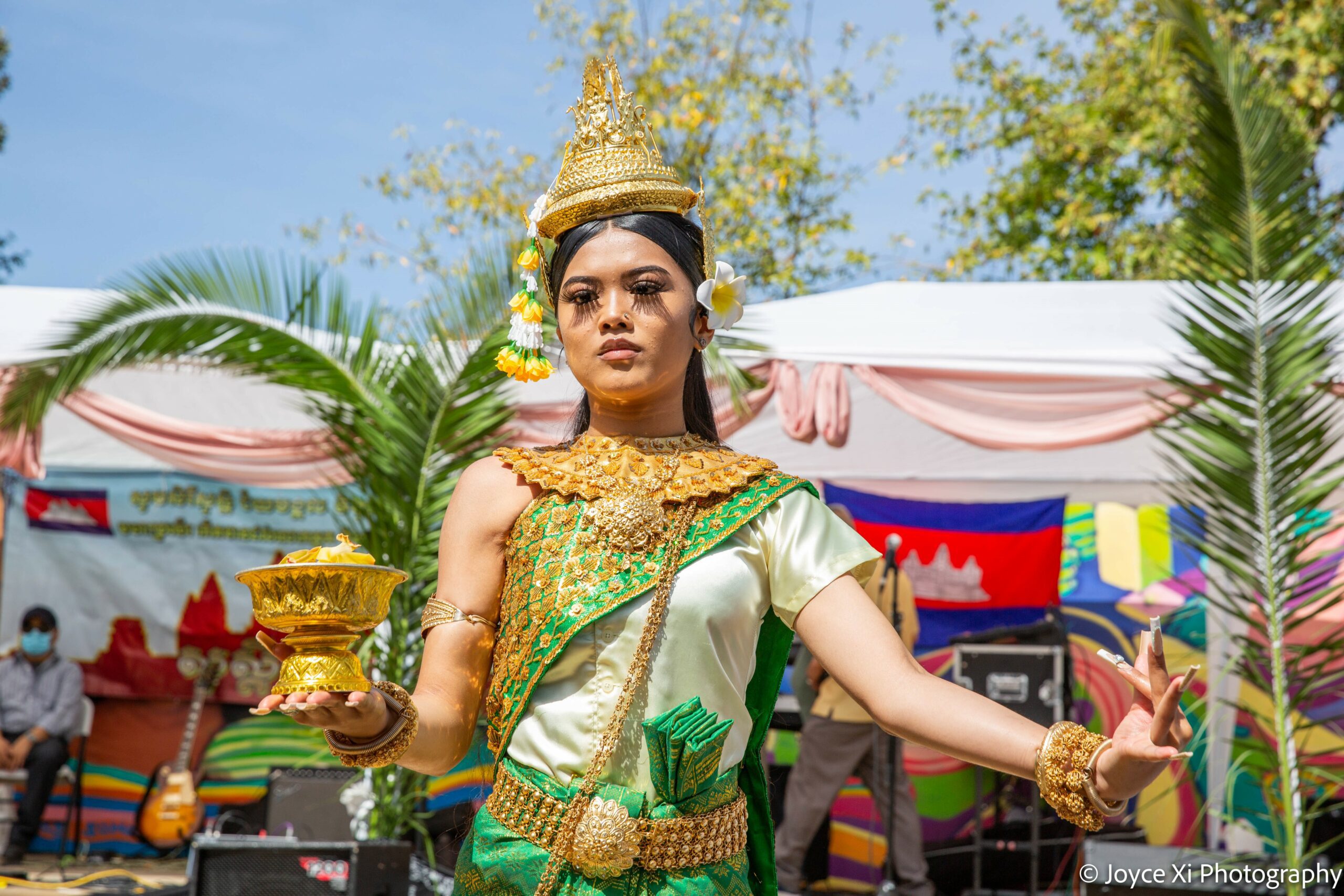Photo credit: Cambodian New Year Festival at Peralta Hacienda Historical Park photographed by Joyce Xi
Asian American and Pacific Islander Heritage Month honors and celebrates the contributions and achievements of generations of Asian and Pacific Islanders who have helped shape the country.
President Jimmy Carter made the then-week-long celebration official when he signed a joint resolution on October 5, 1978. In 1990, Asian Pacific Heritage Week was expanded when George H.W. Bush signed a bill passed by Congress designating May as Asian American and Pacific Islander Heritage Month.
In that spirit, EBCF staff curated a list of 10 must-read books by Asian American and Pacific Islander authors. These books will expand your knowledge and add context to the triumphs of many of the social justice issues embedded within our history. As philanthropists, it is essential to learn more about these untold stories to enhance our efforts toward an inclusive, fair, and just East Bay.
We invite you to take a look, pick a book, and learn more about Asian American and Pacific Islander heritage this month and every month!
- All I Heard Was My Sorrow by Sambo Ly. This autobiography tells the story of Sambo Ly’s escape from the Cambodian Khmer Rouge regime. Despite the trauma endured by Sambo, her story is about family, determination, and resilience. Sambo lives in the East Bay and is the lead organizer of the Annual Cambodian New Year Festival at Peralta Hacienda Historical Park, a historical site located in Oakland’s Fruitvale neighborhood.
- Go Home! edited by Rowan Hisayo Buchanan. Asian diasporic writers imagine “home” in the twenty-first century through an array of fiction, memoir, and poetry. Both urgent and meditative, this anthology moves beyond the model minority myth and showcases the singular intimacies of individuals figuring out what it means to belong.
- Minor Feelings: An Asian American Reckoning by Cathy Park Hong. Cathy Park Hong fearlessly and provocatively blends memoir, cultural criticism, and history to expose fresh truths about racialized consciousness in America. Part memoir and part cultural criticism, this collection is a relentless and riveting pursuit of vital questions around family and friendship, art and politics, identity and individuality.
- On Earth We’re Briefly Gorgeous: A Novel by Ocean Vuong. On Earth We’re Briefly Gorgeous is a letter from a son to a mother who cannot read. The letter unearths a family’s history that began before he was born, a history whose epicenter is rooted in Vietnam, and serves as a doorway into parts of his life his mother has never known, all of it leading to an unforgettable revelation.
- The Joy Luck Club: A Novel by Amy Tan. In 1949 four Chinese women, recent immigrants to San Francisco, begin meeting to eat dim sum, play mahjong, and talk. United in shared unspeakable loss and hope, they call themselves the Joy Luck Club. Rather than sink into tragedy, they choose to gather to raise their spirits and money.
- The Name Jar by Yangsook Choi (kids book). Being the new kid in school is hard enough, but what about when nobody can pronounce your name? Having just moved from Korea, Unhei is anxious that American kids will like her. So instead of introducing herself on the first day of school, she tells the class that she will choose a name by the following week.
- The Namesake: A Novel Kindle Edition by Jhumpa Lahiri. Pulitzer Prize winner Jhumpa Lahiri brilliantly illuminates the immigrant experience and the tangled ties between generations. The Namesake explores many of the same emotional and cultural themes as Lahiri’s Pulitzer Prize-winning short story collection Interpreter of Maladies.
- The Island of Sea Women: A Novel by Lisa See. Mi-ja and Young-sook, two girls living on the Korean island of Jeju, are best friends that come from very different backgrounds. When they are old enough, they begin working in the sea with their village’s all-female diving collective, led by Young-sook’s mother. As the girls take up their positions as baby divers, they know they are beginning a life of excitement and responsibility but also danger.
- They Called Us Enemy by George Takei, Justin Eisinger, and Steven Scott. In 1942, at the order of President Franklin D. Roosevelt, every person of Japanese descent on the west coast was rounded up and shipped to one of ten relocation centers, hundreds or thousands of miles from home, where they would be held for years under armed guard. They Called Us Enemy is Takei’s firsthand account of those years behind barbed wire, the joys and terrors of growing up under legalized racism, his mother’s hard choices, his father’s faith in democracy, and the way those experiences planted the seeds for his astonishing future.
- Samurai among Panthers: Richard Aoki on Race, Resistance, and a Paradoxical Life by Diane C. Fujino. An iconic figure of the Asian American movement, Richard Aoki (1938–2009) was also a key architect of Afro-Asian solidarity in the 1960s and ’70s as the most prominent non-Black member of the Black Panther Party. His life story exposes the personal side of political activism as it illuminates the history of ethnic nationalism and radical internationalism in America.
